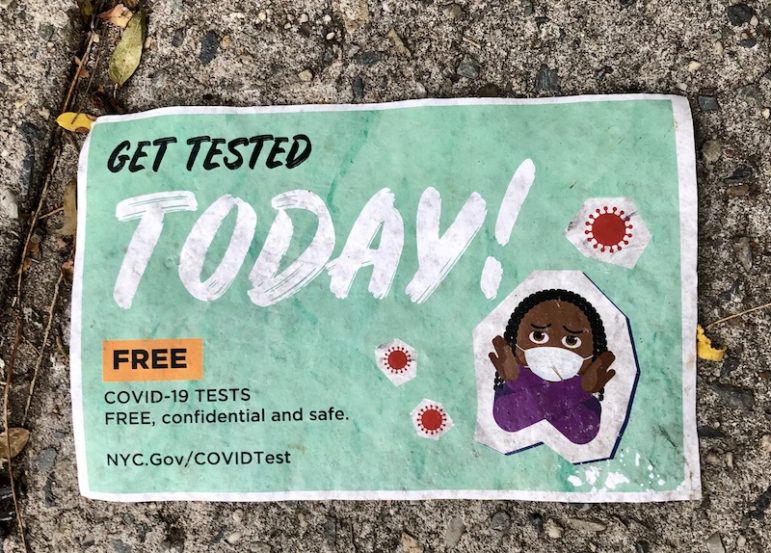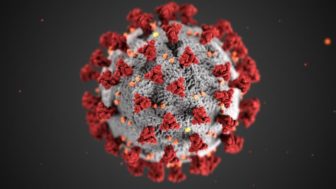The city offer prioritized COVID-19 testing for DOE staff and students at 34 sites across the city. But only for seven days.

Jeanmarie Evelly
On Monday, Mayor de Blasio said that to date, 16,982 DOE employees who work in school buildings have been tested for COVID-19, and that 0.32 percent of those tests came back positive.When Mayor Bill de Blasio agreed to push back the start of in-person classes for New York City public schools earlier this month—following weeks of calls from union leaders and Department of Education employees who worried classrooms were not prepared to safely reopen—his announcement included the news that the city would offer prioritized COVID-19 testing for DOE staff and students at 34 sites across the city.
He didn’t mention, however, that those locations would only be open for a week, beginning September 1 and ending September 7, a day before teachers were due to report to schools for their first day of work, to the frustration of those who used them.
“I thought it would be open throughout the year so that DOE employees could get tested and [get] fast results on an ongoing basis,” one teacher at a school in Brooklyn, who was tested at one of the new sites while they were open, told City Limits. She asked that her name not be published. “It’s really infuriating because all my teacher friends are talking about how they don’t know if they can see their families for the holidays because they won’t be able to quarantine before and after.”
The city says school staff and students can still get prioritized testing at 22 of its Health + Hospital sites citywide. But those locations are less plentiful—there are only three in Queens, for instance, and just one on Staten Island—and are walk-in only. Testing staff at some of these sites are also “unaware of expedited testing for DOE employees,” according to an open letter penned last week by teachers at Brooklyn’s M.S. 88, where two staff members tested positive for coronavirus. “Some staff members were told it meant you got to skip the line; others were told that the sites simply were not designated for DOE employees.”
The situation is emblematic of what some feel has been a lackluster or haphazard effort on the city’s part to provide the adequate and accessible testing needed to safely reopen schools, especially with students expected to return to buildings for blended-learning starting September 21. The onus has been placed on teachers to find and seek out a testing location, get tested on their own time and, if they’re unfortunate enough to test positive, notify their colleagues.
“It has been left up to the discretion of staff to get tested and ultimately to report positive results to school principals, meaning that there are probably many COVID-positive teachers in our school sites,” the M.S. 88 letter reads. Despite promises by the city that its Test & Trace Corps will conduct a thorough investigation at schools with positive cases to determine who else was exposed, the letter claims that two people at M.S. 88 who had been “in close contact” with the teacher who tested positive had not heard from contact tracers 36 hours later.
On Monday, Mayor de Blasio said that to date, 16,982 DOE employees who work in school buildings have been tested for COVID-19, and that 0.32 percent of those tests came back positive, accounting for approximately 55 positive cases across the city’s more than 1,800 schools. Just one school building was shuttered so far, but reopened Monday, the mayor said. He also announced the opening of a “DOE COVID Response Situation Room,” which will operate six days a week and run a direct hotline to which school principals can report positive cases.
“That will immediately activate contact tracing and all the appropriate steps to make sure that anyone who does need to be isolated will be isolated quickly,” de Blasio said.
But some have questioned why such an operation wasn’t up and running earlier, especially prior to September 8, when DOE workers first returned to schools. Some teachers are also pushing for the city to make sure all students and teachers are tested regularly, instead of the 10 to 20 percent of school populations that will be tested under the city’s medical monitoring program, in which a random sample of students and teachers at each school building will picked each month to undergo mandatory COVID-19 tests, with families asked to sign a consent form at the start of the school year. That monthly testing program is set to launch October 1.
“There are huge chunks of time that are lapsing in this scenario,” says Sally Beane, a special education teacher at a school in Queens, who worries about the fact that students will have been in school buildings for days by the time the city’s randomized testing starts, and teachers for more than three weeks. “There’s nothing guaranteeing anybody’s safety on the 21st.”
Beane was among those who got a COVID-19 test at one of the 34 prioritized testing sites the city announced at the start of the month, and says she got her results within 26 hours. She was happy with the experience—the site was located conveniently along her commute to school, and so she was considering making a visit there a part of her regular weekly routine during the school year.
But that testing location closed on September 7. The city’s remaining H+H sites offering priority for teachers are not nearby, she says, though she plans to still seek out regular tests on her own time. That fact, Beane says, reflects what she feels is a larger societal expectation placed on teachers, who are often left to their own devices when it comes to getting the things they need to do their jobs successfully, like buying many of their own classroom supplies each year out of pocket.
“I think there’s a real reliance on teachers to fill these gaps, and that’s not okay,” she says.
The mayor’s office did not respond to questions about why some of those prioritized testing sites for teachers were only open for a week, but said in a statement that it has “worked to make testing as fast and convenient for school-based staff across the city.”
“The results have paid off, with 97 percent of tests coming back within 48 hours,” mayoral spokeswoman Avery Cohen said. “We’re committed to testing every last case of the virus, and will continue to work in lockstep with UFT to ensure we are doing everything in our power to make schools safe. Our students and teachers deserve nothing less.”










